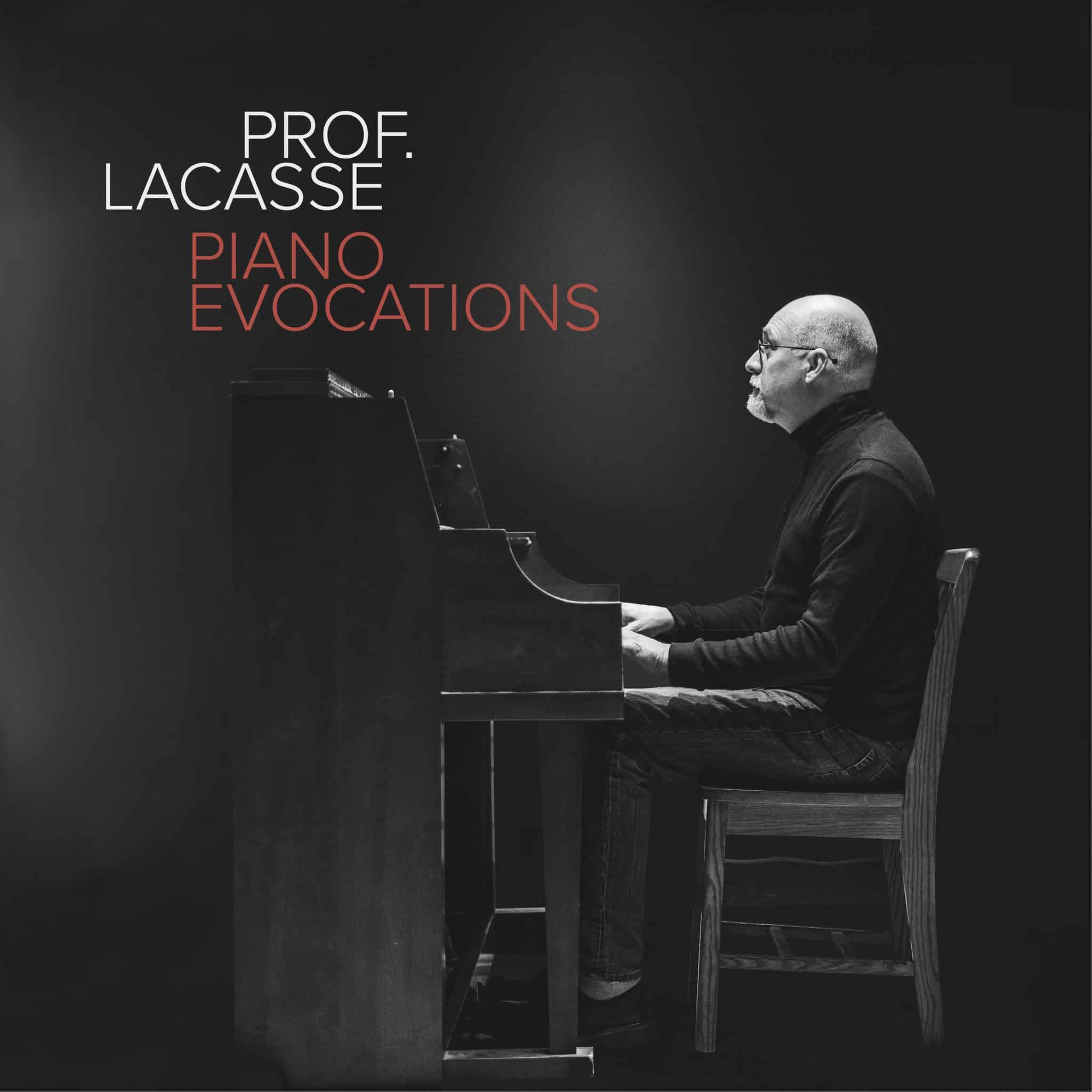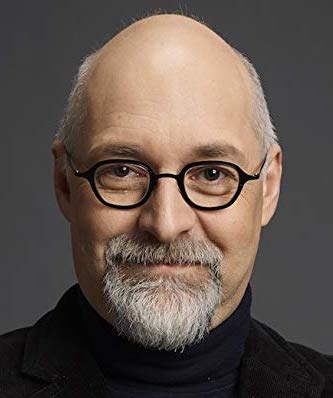
Piano Evocations
By Prof. Lacasse | released on March 15, 2019Album Review
Review by Nikos Kokkinis | 1st September 2019

Have you ever thought what you would take with you if you ever died? Well, if you had the choice, that is. I do not know what I would have taken, but for some people it is definitely going to be Prof. Lacasse’s monumental album Piano Evocations.
This album’s internal fire is so strong that it can heal any troubled soul.
I found that the music felt right at home in many settings; I have already listened to it multiple times on my stereo monitors at home, in my car on the way to work, and on my semi-professional headphones late at night, and it never failed to take hold of me. And I am not talking about its impeccable sound-engineering marvels or its rocksteady mastering that derive straight from Prof. Lacasse’s expertise. I am talking music here.
I was impressed by Prof. Lacasse’s strong compositional technique. His structural choices are to the point and, contrary to present-day compositional norms, not superfluous; instead of bombarding you with endless musical suggestions and thick unnecessary structures that only prevent you from apprehending the deeper suggestions of his music, Prof. Lacasse’s laconic designs of the right-hand let you become the interpreter of where this musical journey could go. Equally, the rhythmical structures of the left hand are strategically chosen to assist, and do not inadvertently steal from the right hand’s musical story. And those left-hand rhythmical choosings could not be less than perfect, reflecting the Professor’s early days of playing the drums.
His music is a definite example of the fact that the deepest feelings and emotions are not confined to complex and massive-sounding musics, but can also be found in the outskirts of what the aficionados of serious music expect.
If anything, the composer’s work often begged for more development; I, naively, just could not accept that a favourite passage was not going to reappear in a cliché, refrain-like, fashion. But then, this is, perhaps, why I would replay that track and longed to listen to it the following day.
Some favourites are Lost and Found, of course, which is perfect as a type of lead-single, but also Beving and particularly Horizon, where traces of Russian-way of melody projection can be found —well, to me that is, because when I asked Prof. Lacasse about this, he found my assumption thought-provoking.
Evoke some composers, some emotions and some colours.
And coming to our conversion, Prof. Lacasse is endlessly educational, interesting, and he just flows. Our two-hour long conversation, in a far cry from the academic and serious image that he theatrically produced in the album’s cover, showed a man with openness to the New, a storyteller that can mesmerise you with his musical tales of past times and at the same time a master of music analysis.
Answering my question of what this album was all about, he asserted that he wanted to “evoke some composers, some emotions and some colours.” He confessed that he wanted to discover himself by discovering who this music will touch. Because according to his masterplan, those pieces, some of which gathered from way back, could ultimately show us who we really are.
But firstly, Prof. Lacasse’s initial plan was to show himself who he really is; well, he is an knowledgable pianist. That goes without saying; even though he performed those pieces on a digital keyboard using samples from the acclaimed Native Instruments company, there are no bad practises to be found regarding copying and pasting phrases or other manipulations with his DAW1; he would admittedly sometimes record a piece for up to ten times before eventually choosing a favourite take and use it —one could only perceive that this alone was an effort to project an as close as possible iteration of himself.
So, “Should I buy this album?” you may ask. Well, I should reverse the question and answer with another question: would you like to discover yourself?
______________
1 Digital Audio Workstation; used by composers to audibly represent their musics.

Prof. Lacasse (Serge Lacasse)
Composer, Producer, Professor of Musicology

